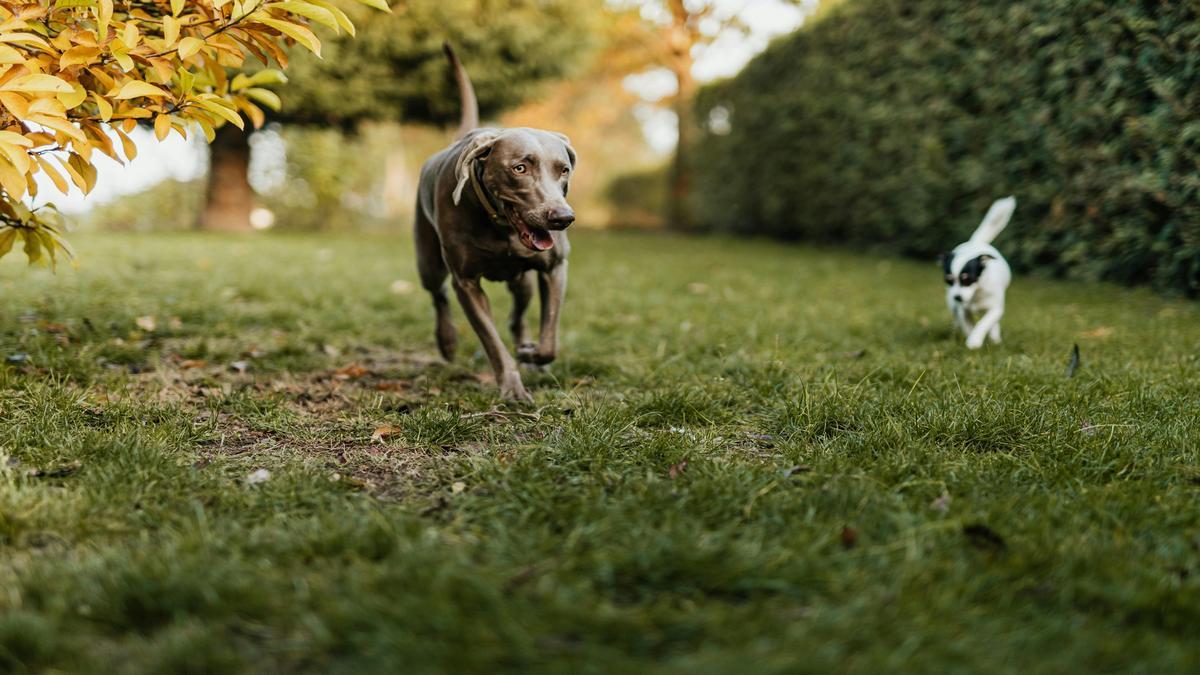Are you worried about your furry friend showing signs of lethargy or lack of energy? This article will guide you through identifying illness or depression as common causes, implementing natural energy boosters, incorporating energy-boosting foods, and trying holistic remedies to increase your dog’s vitality. Learn about the importance of exercise, supplements, a balanced diet, and monitoring your dog’s energy levels to combat lethargy and keep your canine companion happy and healthy!
Main Points
- Feed your dog a balanced diet
- Regular exercise is key
- Ensure your dog stays hydrated
- Provide mental stimulation
- Schedule regular vet check-ups
Understanding the Causes of Lethargy in Dogs
Identifying Illness as a Common Cause
When your furry friend is showing signs of lethargy or lack of energy, it’s essential to consider underlying health issues as a potential cause. Dogs can’t verbally communicate when they’re feeling unwell, so it’s crucial to pay attention to any changes in their behavior. Illnesses such as infections, digestive problems, or even more serious conditions like organ failure can lead to lethargy in dogs.
Recognizing Depression in Dogs
Just like humans, dogs can experience depression. Changes in their environment, loss of a companion, or even lack of mental stimulation can trigger feelings of sadness in our canine companions. If your dog seems disinterested in activities they once enjoyed, shows a decrease in appetite, or exhibits withdrawn behavior, they may be experiencing depression.
How to detect signs of illness or depression in your dog
To detect signs of illness or depression in your dog, you should observe their behavior closely. Look out for the following red flags:
- Decreased appetite or refusal to eat
- Lack of interest in activities or toys
- Excessive sleeping or difficulty waking up
- Unusual aggression or irritability
- Changes in bathroom habits By monitoring your dog’s behavior and seeking veterinary advice if you notice any concerning symptoms, you can address the underlying cause of their lethargy and help them regain their vitality.
Implementing Natural Energy Boosters for Dogs
Incorporating Energy-Boosting Foods
When it comes to boosting your furry friend’s energy levels, incorporating the right foods into their diet can make a significant difference. Here are some energy-boosting foods that can help increase your dog’s vitality:
- Salmon: Rich in Omega-3 fatty acids for overall health
- Sweet Potatoes: High in fiber and provide a slow-release of energy
- Blueberries: Packed with antioxidants to support the immune system
- Lean Proteins: Essential for muscle health and energy production
- Coconut Oil: Contains medium-chain triglycerides for quick energy By meticulously selecting the right combination of these foods, you can provide your dog with the nutrients they need to stay energized throughout the day.
Trying Holistic Remedies for Dog Tiredness
If your dog is experiencing lethargy or lack of energy, holistic remedies can be a natural way to help them bounce back. Here are some ways to naturally increase your dog’s vitality:
- Regular Exercise: Ensure your dog gets enough physical activity to keep their energy levels up.
- Quality Sleep: A good night’s rest is essential for maintaining energy levels.
- Mental Stimulation: Engage your dog with interactive toys and puzzles to keep their mind sharp.
- Herbal Supplements: Consider supplements like ginseng or ginkgo biloba to boost energy levels. By tailoring these holistic remedies to your dog’s needs, you can help them combat tiredness and stay active and healthy.

Exercise as a Key Factor in Boosting Dog Energy Levels
Importance of Regular Physical Activity
Regular exercise is crucial in maintaining your dog’s health and well-being. It helps in boosting their energy levels, improving their mood, and preventing behavioral issues that may arise due to boredom or pent-up energy. Just like humans, dogs need to stay active to stay healthy and happy.
Fun Ways to Increase Stamina in Dogs
Here are some fun ways to help increase your dog’s stamina and keep them active and energetic:
How to create an engaging exercise routine for your furry friend
- Morning Walks: Take your dog for a brisk walk in the morning to kickstart their day.
- Fetch: Play a game of fetch with your dog using their favorite toy.
- Agility Training: Set up an agility course in your backyard to challenge your dog physically.
- Swimming: Take your dog for a swim to provide a full-body workout.
- Interactive Toys: Use interactive toys that dispense treats to keep your dog engaged. By incorporating these activities into your dog’s routine, you can help them stay active and healthy while having fun at the same time.
Supplements to Combat Lethargy in Dogs
Best Supplements for Dog Fatigue
When your furry friend is feeling lethargic, it can be concerning. However, there are supplements available that can help boost their energy levels and overall well-being. Here are some of the best supplements for combating dog fatigue:
- Omega-3 Fatty Acids: Supports joint health and cognitive function
- Vitamin B12: Aids in red blood cell formation and energy production
- Coenzyme Q10: Helps improve energy production at a cellular level
- L-Carnitine: Assists in converting fat into energy
Understanding the Benefits of Energy-Boosting Supplements
Supplements designed to combat lethargy in dogs can provide a much-needed boost to their vitality and overall health. These supplements work by providing essential nutrients that may be lacking in your dog’s diet. By incorporating these supplements into your furry friend’s routine, you can help them feel more energetic and lively.
How to choose the right supplements for your dog’s energy needs
When selecting supplements for your dog, it’s essential to choose ones that are tailored to their specific energy requirements. Here are some tips on how to choose the right supplements for your dog’s energy needs:
- Consult with your veterinarian to determine which supplements are best suited for your dog.
- Look for supplements that are formulated to address lethargy and boost energy levels.
- Consider your dog’s diet and any existing health conditions when selecting supplements.

The Role of Diet in Improving Dog Vitality
Energy-Boosting Diet for Dogs
When it comes to improving your furry friend’s vitality, a balanced and nutritious diet plays a crucial role. Just like humans, dogs need the right nutrients to maintain their energy levels and overall well-being. By navigating the complexities of your dog’s dietary needs, you can help them unveil their true vitality.
Foods that Energize Dogs
Here are some foods that can help boost your dog’s energy levels:
- Lean Proteins: Essential for muscle growth and repair
- Complex Carbs: Provide a steady source of energy
- Healthy Fats: Support brain function and overall health
- Fruits and Veggies: Rich in vitamins, minerals, and fiber
Tips for creating a balanced and nutritious diet for your canine companion
- Consult your veterinarian for tailored dietary recommendations.
- Choose high-quality dog food with real ingredients.
- Avoid processed foods and excessive fillers.
- Provide fresh water at all times.
- Monitor your dog’s weight and adjust their diet accordingly.
Monitoring and Maintaining Your Dog’s Energy Levels
Signs of Improved Vitality in Dogs
When it comes to monitoring your furry friend’s well-being, paying attention to their energy levels is crucial. Here are some signs that indicate your dog is in good spirits and has improved vitality:
- Playfulness: A lively and energetic attitude during playtime.
- Healthy Appetite: Eagerly eating their meals and maintaining a healthy weight.
- Shiny Coat: A lustrous and well-groomed coat is a sign of good health.
- Alertness: Being attentive and responsive to their surroundings.
- Good Sleep Patterns: Resting peacefully and having a regular sleep schedule.
Tips for Sustaining High Energy Levels in Dogs
To ensure your canine companion maintains their vitality and high energy levels, here are some tips to keep in mind:
- Regular Exercise: Engaging in daily walks and playtime to keep your dog active.
- Balanced Diet: Providing nutrient-rich food and fresh water to support their energy needs.
- Mental Stimulation: Interactive toys, training sessions, and new experiences to keep them engaged.
- Routine Veterinary Check-ups: Scheduled visits to the vet for preventive care and health assessments.
How to keep track of your dog’s energy and well-being
To monitor your dog’s energy levels and overall well-being, consider the following:
- Observe their behavior and body language for any changes.
- Keep a journal to record their eating habits, exercise routines, and sleep patterns.
- Consult your veterinarian if you notice any unusual signs of lethargy or lack of energy.
Frequently asked questions
What are the signs of lethargy in dogs?
- Lethargy in dogs can be noticed by a lack of interest in activities, excessive sleeping, and low energy levels. Keeping an eye on your furry friend’s behavior is key to detecting lethargy.
How can I help my dog combat lethargy?
- To boost your dog’s energy levels, consider increasing exercise, providing a balanced diet, ensuring they get enough rest, and seeking advice from a veterinarian if lethargy persists.
Can illness cause lack of energy in dogs?
- Yes, illnesses such as infections, pain, and diseases can lead to lethargy in dogs. If your dog is showing signs of lethargy, it’s essential to consult with a vet to rule out any underlying health issues.
Is depression a possible reason for my dog’s lack of energy?
- Depression can indeed cause lethargy in dogs. Changes in the household, loss of a companion, or traumatic events can trigger depressive feelings in our canine friends, impacting their energy levels.
Can insufficient exercise contribute to my dog’s lethargy?
- Absolutely! Just like humans, dogs need regular physical activity to stay healthy and energetic. Insufficient exercise can lead to obesity, muscle weakness, and ultimately, lethargy in our furry companions.

